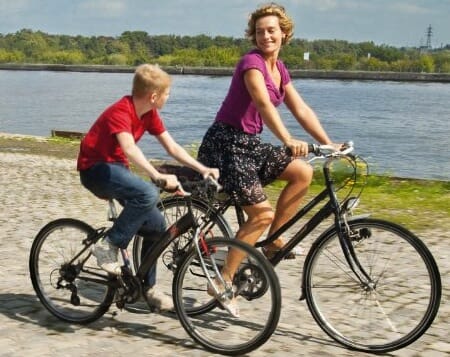The Kid with a Bike

The Kid with a Bike continues the Belgian writing-directing brothers Jean-Pierre and Luc Dardenne’s extraordinary run of charting the lives of European down-and-outers navigating difficult moral and spiritual terrain. That time and again they’ve managed to do so incisively, yet with an emotionally detached tone, speaks to their ability to elicit complex audience reactions with a sure, minimalist style. The Kid with a Bike is no exception.
The Dardennes’ latest follows 11-year-old Cyril (Thomas Doret) as he struggles to reconcile with the fact that his father, Guy (Jérémie Renier), has abandoned him. In shock and denial, Cyril, with the aid of Samantha (Cécile de France), a neighborhood hairdresser, tracks down his bicycle, which Guy had secretly sold for much-needed cash before his departure. The two also locate Guy himself, leading to a wrenching reunion that ends with the father literally shutting the door in his son’s face.
Samantha’s show of concern draws Cyril to her, and she welcomes him into her home as her foster son. Full of confusion and self-loathing after his father’s rejection, Cyril is prone to disobedience, defying Samantha’s efforts to create a sense of structure and belonging for the boy. Cyril’s inevitable mix-up with a local hood, Wes (Egon Di Mateo), initiates a downward spiral into crime and retaliation that threatens any prospect for better days ahead for the wounded Cyril and the devoted Samantha.
-

-

-

-

-

-

-

-

-

-

-

-

-

-

-

-

-

-

-

-

-

-

-

-

-

-

-

-

-

-

-

-

-

-

-

-

-

-

-

-








































